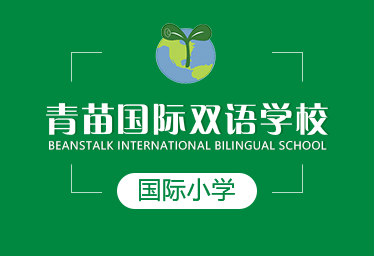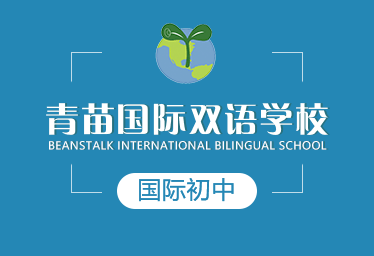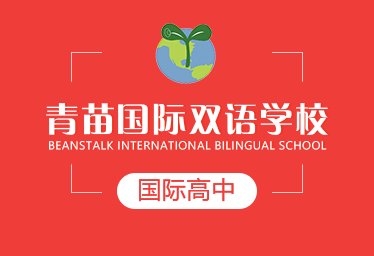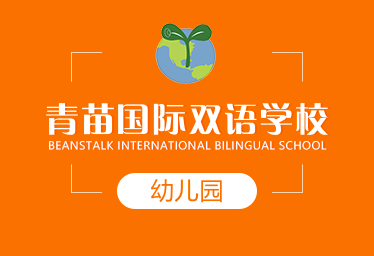IB-PYP改革带来哪些影响和改变?——青苗国际双语学校
来源:雅学教育招生网
时间:2022-01-27 14:52:55
去年10月,IB国际文凭组织上线了新版的PYP(国际文凭小学项目)大纲,这对于PYP课程以及我们的孩子而言,究竟又有那些具体影响呢?为此,我们特别采访了青苗国际双语学校上东校区的IB PYP协调员安妮女士,请她具体谈一谈IB改革后PYP课程的一系列变化。借此机会,我们也了解到关于上东校区即将迎来的IB复审工作,以及安妮女士任职六年来亲眼目睹的青苗变化。深度好文,不要错过!
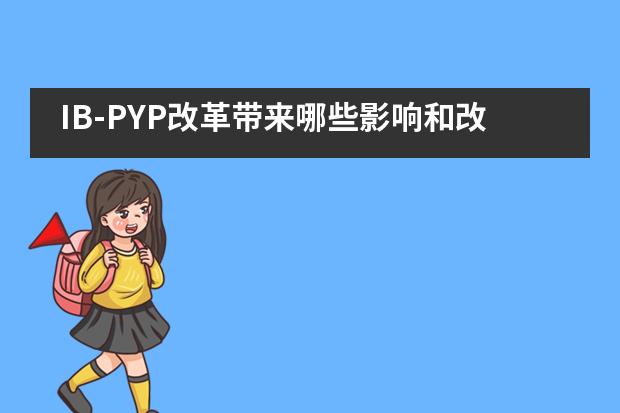
许多家长关注IB课程的全面改革,您是否可以谈一谈与之前的课程相比,IB PYP(国际文凭小学项目)在哪些方面做了调整和变化?
与其说是“全面改革”,倒不如说是进一步“提升”更为准确。
与之前相比,IB精髓并没有改变,比如,在“学习和教学”方面它依然是“以超学科为主,以概念驱动为根基,基于探究并以学生开展负责任的行动”为核心的教育项目。其目的仍然是为了更好地帮助孩子去应对迅速变化的世界带来的种种机遇和挑战。

其最大的变化,莫过于PYP第一次明确提出“能动力(Agency)”这个中心原则,并将“学习者”“学习社区”列为与“学习和教学”并行的三大课程支柱。
这种变化意味着IB PYP更加重视IB社区内每一位成员的学习和教学作用,无论学生、老师还是家长,他们每个人拥有更多的发言权、选择权和主导权来影响学习和教学。这些整体化元素相辅相成并相互加强,从而构成一个和谐的整体。
您能举一些具体的案例,来帮助我们理解这些变化为学生和教师带来了哪些影响吗?

举一个最直接的例子,这学期五年级的第一个探究单元“我们是谁”,是让孩子们通过了解自己的身心变化认知青春期。按照往年的课程计划,每个探究单元应该在6周左右完成。但今年,老师发现并提出,这一单元内容不必拘泥于6周的时限,如果分配在整个学年,让孩子们通过记录每个时段的不同变化,以年末回顾的方式来面对自己的成长,一定能得到更多收获。在得到老师、孩子、家长们的肯定后,我们就这样做了。也就是说,IB PYP把更多主导权交给了学习者,在实际的学习过程中,根据自身特点和实际需要,我们可以更灵活、更务实地进行探究学习。

还有一个例子,比如往年评估,多数是由老师们共同制定评估标准。但是今年,我们尝试让孩子与老师一起参与评估标准的制定。按照IB PYP新的要求,人人都是学习者和教学者,孩子们不仅可以安排自己学什么、怎么学,还可以为自己制定评判标准。我们发现这样做的好处是,孩子们非常清楚“优秀”的准则,并且更加明确和执着地向着“优秀”的目标去努力!
您从2013年担任青苗上东校区IB协调员以来,不仅直接参与了上东校区2016年的PYP认证工作,明年即将迎来五年一次的IB复审。请问上东校区为此做了哪些准备?
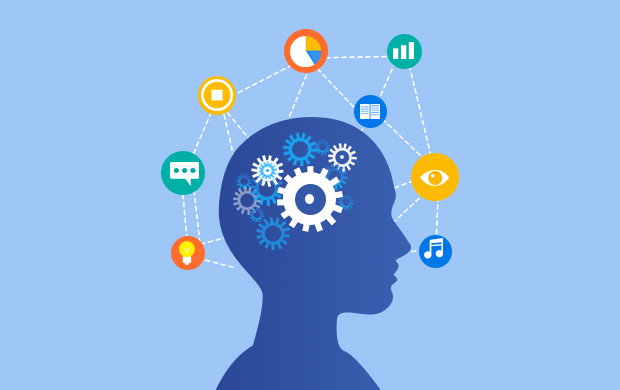
自2016年6月,青苗上东校区获得国际文凭小学项目(IB PYP)认证以来,青苗社区的每一位成员,在IB的学习和实践之路上,都做出了充分的努力和贡献,我们的IB PYP更加成熟和成功。今年我们在Evan Hunt校长的带领下,面对IB复审的“自检”工作已经开始有步骤、有条理地陆续展开。无论是在理念、组织结构,还是课程、评估这些方面,我们上东校区都非常有信心圆满完成此次复审工作!
在青苗的6年时间里,您最大的感受是什么?您觉得青苗最大的变化是什么?

说到这个我还真是蛮感慨的,我的父亲是中国人,虽然我在马来西亚出生和成长,但我也算是半个中国人。当初能与青苗结缘也是源自我们对中国文化共同的热爱。作为一所国际学校,青苗在致力于拓展学生“国际视野”的同时,能够始终坚持保留孩子的“中国情怀”,这么多年初心未改,由最初双语教育的“开拓者”成为如今的“领航者”,让我觉得非常了不起!
这些年青苗的变化之多、之大也是有目共睹,我个人感受最直接的大概有如下三个方面:

第一是家长们的变化
之前家长的焦虑在于对IB体系没有深入了解,他们不理解为何没有IB课本,也不清楚孩子的学习内容,想辅导孩子却又无从下手。通过多次为家长开设IB工作坊,家长们对我们、对IB的理解,也已由从前单纯对“语言”“课程”的关注,转而对“教育”更深入、更全面的认知和反思。我们的“双语教学”和“中西合璧的教育理念”也获得了越来越多的信赖者和支持者。
第二是课程和教学的变化
从最初引入IB课程,到结合国家教育大纲课程,青苗上东校区的所有教师们在“课程与教学”的IB“本土化”上做出了非常多的尝试和探索。事实证明我们的实践是非常成功的,我们不仅获得了国际文凭组织(IBO)的极大认可和肯定,优秀的教育成果案例也数不胜数。一个从一年级就在青苗就读孩子,每天妈妈从海淀开车接送他上下学。2016年代表青苗上东校区参加某国际数学竞赛荣获金奖!小学毕业后因为父母想让他考取清华,重回公立体制,不仅各门成绩名列前茅,因为英文特别突出,还经常作为学生代表参与学校国际交流活动!还有一些从上东毕业就出国的孩子们,家长都会给我们捎来好消息,说感谢青苗让孩子们无缝衔接国际课程,不光拥有双语优势,甚至还比当地的孩子更具自主学习的能力。

第三是平台的变化
近几年,青苗已由最初的单一校区发展成为拥有近二十余校区、涵盖从幼儿园到初高中的教育集团。尤其是今年,我们迎来海淀、常营两所新校区的同时开放!作为青苗的一份子,我们都很骄傲如今青苗的发展,每个人都可以在更大的平台和更多的机会中,找到最适合自己的位置和成长路径。青苗真的正在越来越好,越来越强!
Last October, IBO published the new version of PYP outline. What does this mean to our children? Today Ms. Annie Chew, the BIBS-UES IB PYP Coordinator will share her understanding on the new IB PYP with us. We will also take this opportunity to learn about upcoming BIBS-UES IB review status, and all the changes in the last 6 years since Annie joint BIBS.

Many parents have paid close attention to the recent IB reform. Can you please let us know that compared to the previous curriculum, what’s new in the new IB PYP?
Instead of ‘total reformation’, I’d call it a ‘promotion’.

The essence of IB has not changed. i.e. in terms of ‘Learning and Teaching’, the new IB PYP remains an academic project focusing on trans-disciplinary, concept-driven, inquiry-based and responsible actions of the students. The goal is still to prepare the students for the challenges and opportunities in the ever-evolving world.

The biggest change however, is the first-time raised core principle of Agency, and the combination of three parallel fundamentals of the curriculum: Learner, Learning Community and Learning and Teaching.

This means the new IB PYP pays more attention to the learning and teaching of every member in an IB community. Students, teachers and parents are all entitled to more rights to speak, choose and dominate on the learning and teaching process. These integrated elements work with each other harmoniously and complete the program as a whole.
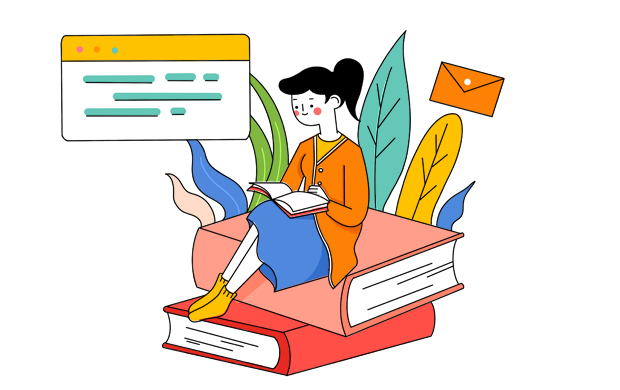
Can you please name a few examples to help us understand what the changes mean to students and teachers in reality?
A good example is the first inquiry unit in this year’s G5 – ‘Whom we are’, which aims to introduce the students to puberty by being aware of their own mental and physical changes. In the past every inquiry unit took 6 weeks to complete. Yet this year we decided to break this limit and let our students spread the unit through the entire academic year, as we believe more data and look-back gives us more feedback. Having received approval from our teachers, students and parents, this is what we did. In other words, the new IB PYP gives control to the learners. In the learning process, we can be flexible and practical based on the actual needs.

Another example is about assessment standards, which had always been set by teachers solely. But since year we try involving our students in this. The new IB PYP requires everyone to be a learner and teacher. Students can decide what they want to learn, how they learn it, and how to assess. We’d like to believe that our students will gain a clearer understanding of ‘excellence’, and how they pursue their goals to become excellent.

Since joining BIBS as the UES IB Coordinator, you have been involved in the 2016 PYP certification and will welcome the upcoming 5-years review. What has been done so far for it?
BIBS-UES received its IB PYP certification in June 2016. Since then every BIBS community member has made their own contribution to the IB learning to make our IB PYP more successful.We have started preparing for the upcoming review under the leadership of Principal Evan Hunt since the beginning of the year. From educational concept, organization, curriculum to assessment, UES is confident and ready!

What have you gained from the past 6 years with BIBS? And what’s the biggest change of BIBS in your eyes?
My father is Chinese. I was born and raised in Malaysia. I’d like to think my love for the Chinese culture brought me to BIBS. Being an international school, BIBS keeps Chinese roots for the students while opening them with worldwide vision. From the earliest explorer to a leading pioneer, BIBS has always kept its commitment to the best international bilingual education.

A lot has changed in my last 6 years here:
Parents
most of previous parents’ concern was a result of lacking understanding of the IB system. They didn’t understand why there was no IB textbook, no clear learning content, and no way to support. Through repeated IB workshops, parents started to know better, from basic focus on Language and Courses, to a deeper and broader image of education. Our bilingual teaching and fusion of China and the west have obtained more and more believers and followers too.

Curriculum and Teaching
BIBS-UES teachers have gone a long way localizing the IB curriculum and integrating it with the National Education Program. It’s been proven by facts that our attempts have been very successful. Not only did we received approved by the IBO, there have also been many stories we remember by heart. A student of us started with BIBS since G1, whose mother drove him to and from school every day. In 2016 he won an international mathematics contest representing BIBS UES Campus. Upon graduating from elementary school his parents sent him back to a public middle school with Tsing-Hua as his target university. He has been doing very well in that middle school, and has participated in multiple international exchange activities on behalf of his school because of his outstanding English ability. Some of our graduates are currently studying overseas, and their parents were all very grateful that the previous bilingual education experiences have enabled their children to get along with international courses seamlessly, and many of them are doing even better than local students!

The platform
BIBS has developed into an education group with over 20 campuses throughout the country, covering kindergarten to senior high school. This year we have welcomed our new family members Haidian Academy and Changying Campus! We are very proud of being part of BIBS’ achievement so far, and we are more given more opportunities in the growing platform.



